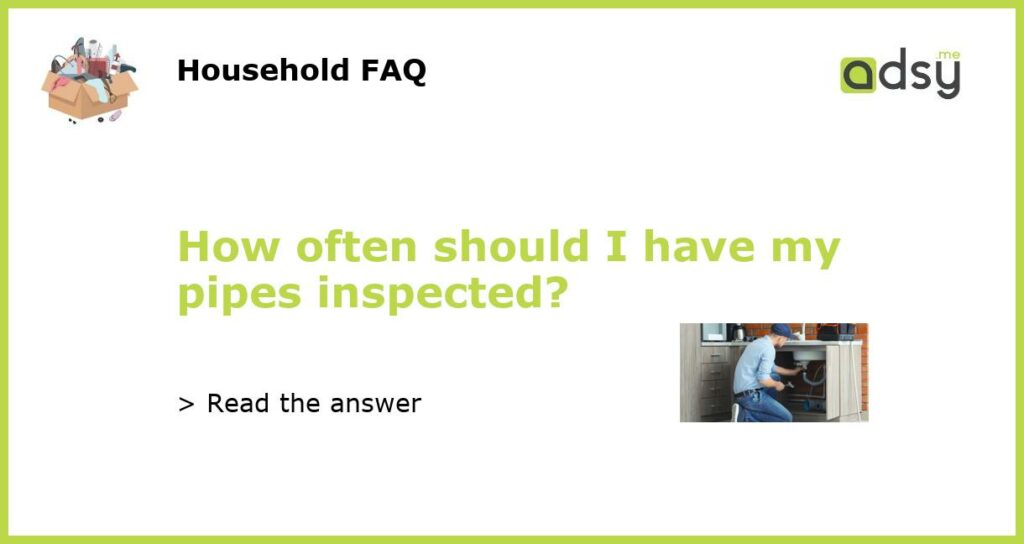The Importance of Regular Pipe Inspections
Regular pipe inspections are crucial for maintaining the health and functionality of your plumbing system. Just like any other part of your home, pipes can deteriorate over time due to age, wear and tear, or even external factors such as tree root intrusion or shifts in the ground.
By having your pipes inspected regularly, you can identify potential issues before they become major problems. This proactive approach can save you time, money, and the hassle of dealing with a sudden plumbing emergency.
Factors that Influence the Frequency of Inspections
The frequency at which you should have your pipes inspected depends on several key factors. One of the most important factors is the age of your plumbing system. If your pipes are over 50 years old, it is recommended to have them inspected annually.
Another factor is the type of material used in your pipes. Different materials have different lifespans and therefore require different inspection frequencies. For example, if you have galvanized steel pipes, which are known to corrode over time, you may need to have them inspected more frequently compared to more durable materials like copper or PVC.
The condition of your plumbing system is also a crucial factor. If you have experienced recurring plumbing issues or have noticed signs of damage such as leaks, low water pressure, or unusual smells, it is advisable to schedule a pipe inspection as soon as possible, regardless of the age or material of your pipes.
Recommended Inspection Intervals
As a general guideline, it is recommended to have your pipes inspected every 1-2 years. This interval allows for the detection of any potential issues before they worsen and helps maintain the overall health of your plumbing system. Regular inspections can help prevent costly repairs and extend the lifespan of your pipes.
However, if you fall into any of the high-risk categories discussed earlier, such as having older pipes or experiencing recurring plumbing issues, you may need to increase the frequency of inspections. Consult with a professional plumber who can assess your specific situation and provide personalized recommendations.
Signs that Indicate the Need for an Immediate Inspection
While recommended inspection intervals provide a good baseline, there are certain signs that indicate the need for an immediate pipe inspection, regardless of when your last inspection was conducted.
If you notice any of the following signs, it is recommended to schedule a pipe inspection without delay:
- Water Leaks: If you detect water leaks, even small ones, it could be a sign of a larger issue within your plumbing system.
- Low Water Pressure: Consistently low water pressure may indicate a blockage or damaged pipes.
- Unpleasant Odors: Foul odors coming from your drains could be a sign of pipe damage or blockage.
- Inconsistent Water Temperature: If your water temperature fluctuates unexpectedly, it may suggest a problem with your pipes.
- Noises: Unusual noises such as gurgling or banging sounds coming from your pipes could indicate a blockage or other issues.
Benefits of Regular Pipe Inspections
Regular pipe inspections provide several benefits for homeowners:
- Early Detection of Issues: Regular inspections allow for the early detection of potential issues, preventing them from becoming major problems that are more expensive and time-consuming to fix.
- Improved Efficiency: Inspections can identify inefficiencies in your plumbing system, such as hidden leaks or blockages, which can be resolved to improve water flow and overall efficiency.
- Extended Lifespan of Pipes: By identifying and addressing any issues promptly, the lifespan of your pipes can be extended, saving you the cost of premature replacement.
- Peace of Mind: Knowing that your plumbing system is in good working order can provide peace of mind and eliminate the stress and inconvenience of unexpected plumbing emergencies.

